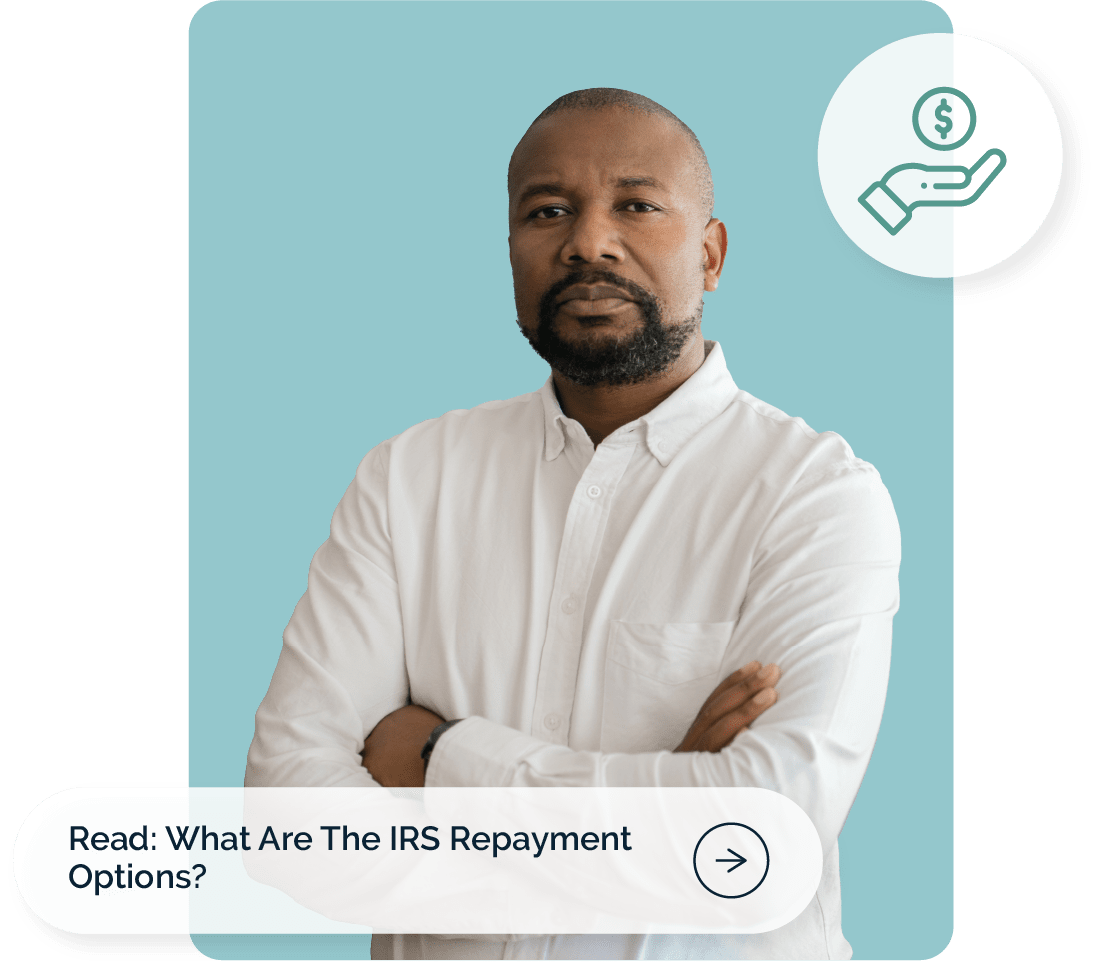“If you didn’t file your tax return, failed to report all your income, filed your return but didn’t pay the resulting liability, you may owe back taxes.”
- Alyssa Maloof Whatley
What Happens If I Don’t Pay My Back Taxes?
If you don’t pay your back taxes, the IRS will typically send a Balance Due Letter CP14, Notice of Tax Due and Demand for Payment. If you do not respond, the IRS will continue to send collections letters approximately 30 days apart.
Types of collections letters include:
What Happens If I Don’t Pay My Back Taxes?
If you don’t pay your back taxes, the IRS will typically send a Balance Due Letter CP14, Notice of Tax Due and Demand for Payment. If you do not respond, the IRS will continue to send collections letters approximately 30 days apart.

Pro Tip:
Don't wait to respond.
It is important to respond quickly to any IRS letters and correspondence you receive as you do not want to lose your rights to due process. You do not want to wait until the IRS has already filed a bank levy or wage garnishment as these types of collection actions can be prevented with proper planning.
Types of collections letters include:
Once the IRS has gone through the Notice phase, the IRS will issue a Notice of Levy and Your Right to A Hearing such as CP90, LT11, or Ltr 1058. This gives you 30 days to file a Collection Due Process Appeal (CDP Appeal) and stop collection activity.
If you fail to respond or do not file an appeal, the IRS can issue a levy, which is a legal seizure of your property or assets such as taking money from a bank account (bank levy) or your paycheck (wage garnishment).
In addition, the IRS can move forward with filing a Notice of Federal Tax Lien which is publicly recorded and creates a claim against your home or any other real or personal property you may own.

Pro Tip:
Don't wait to respond.
It is important to respond quickly to any IRS letters and correspondence you receive as you do not want to lose your rights to due process. You do not want to wait until the IRS has already filed a bank levy or wage garnishment as these types of collection actions can be prevented with proper planning.

“As a CPA, I have worked closely with Alyssa to help with my clients' complicated tax issues. She is very honest, detailed, and responsive and will hold a client's hand until the issue is resolved and provide honest and clear advice along the way. I've seen her greatly reduce client's tax liabilities.”
“From the moment I started working with Alyssa, my distress & blood pressure decreased and my confidence increased that all of this would be okay! Super smart, very knowledgeable, and just delightful to work with. I'm so relieved and encouraged!”
“Alyssa and her team were fast, to the point and so professional with handling an issue I had with the IRS! She promised that the situation would be handled and in just a few short weeks she delivered on that promise. Thank you so much!”
“I find this attorney to be very honest and willing to assist her clients by guiding them in the right direction. I would recommend her to anyone that has a question on matters of her expertise. She is very knowledgeable and a pleasure to work with.”
“Alyssa is an amazing attorney! She is knowledgeable, efficient, and effective! Also, she is quick to respond, extremely pleasant, and very reassuring. We are so grateful for her expertise and help! Highly recommend!”
“Alyssa has helped me and my parents with an overwhelming tax issue. Something we never thought could be done. She's so kind, patient, thorough and knows tax law. I'd recommend her 100% to anyone when it comes to dealing with the IRS.”
“When I first spoke to Alyssa I was facing an IRS Audit for two years at the same time and felt extremely overwhelmed. Alyssa outlined a solid approach and was very easy to talk to and understand. My tax liabilities were brought down by 50%.”
“I was reluctant to reach out due to all the previous calls to other offices who where going to charge me more than what I owed on my taxes. I spoke with the Alyssa, she was very nice and it did not feel like a sales call. She helped me understand the type of letter I received and patient assisting me.”
“If you need legal assistance with your taxes, I strongly recommend Alyssa. Receiving a large tax notice from the IRS was very scary. Alyssa’s calm and level-headed demeanor helped ease my concerns. She responded quickly to my questions and knew just what to do.”
The benefit of entering into an IRS approved repayment plan known as an installment agreement or currently non-collectible is that the statute of limitations continues to run during this period.
With all things tax related, it’s complicated. Determining the timeline for debt isn’t always straightforward. Partnering with a qualified tax professional can help you figure out the best approach for handling back taxes with the IRS.






